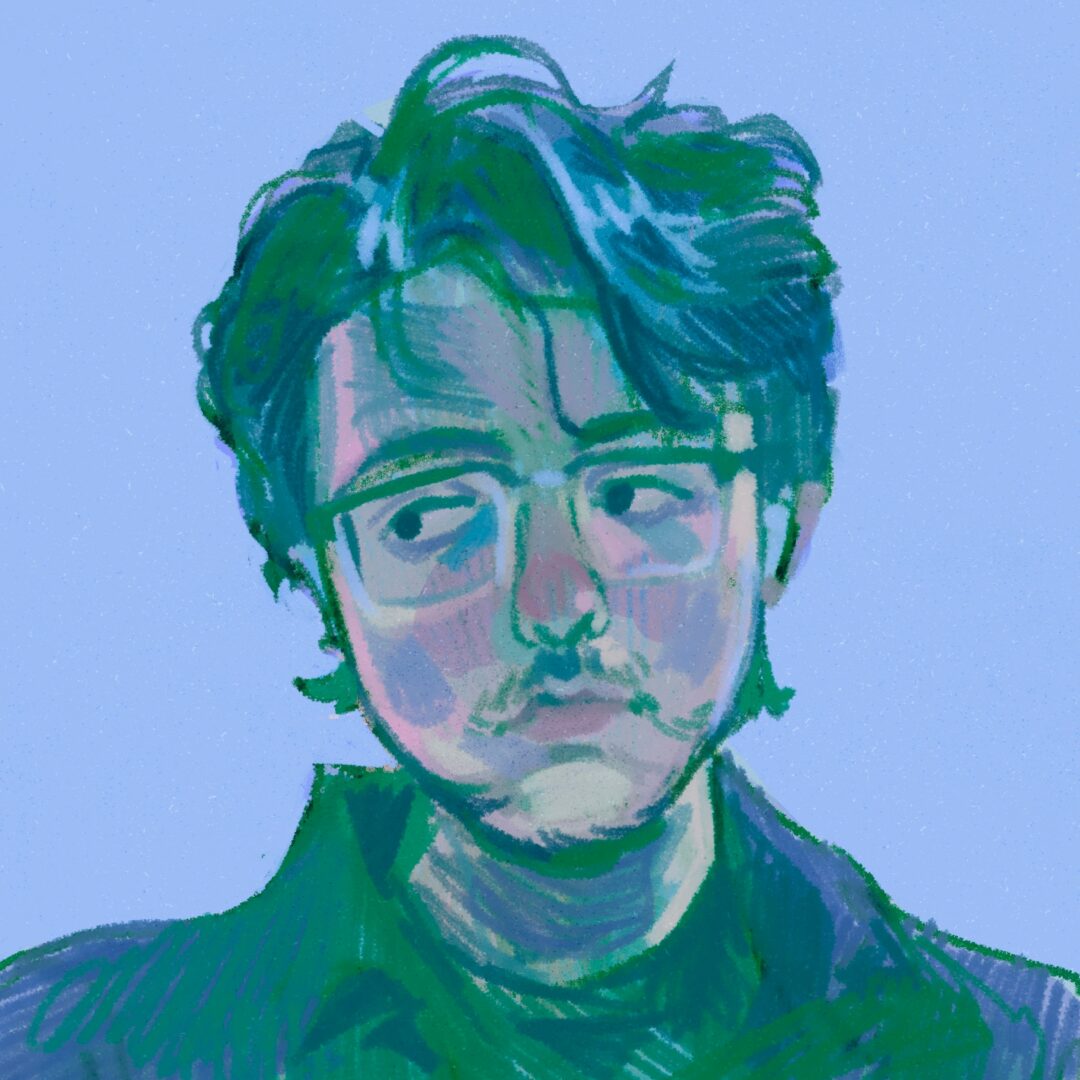We were lucky to catch up with Court Normandin recently and have shared our conversation below.
Hi Court, thank you so much for opening up with us about some important, but sometimes personal topics. One that really matters to us is overcoming Imposter Syndrome because we’ve seen how so many people are held back in life because of this and so we’d really appreciate hearing about how you overcame Imposter Syndrome.
Imposter syndrome is something that I think everybody struggles with, to some extent or another, in all different facets of life. For me I’m not sure if I’ve really “overcome” it completely, as I’m not sure it’s really something that’s one-and-done, taken care of. But, something that I try to tell myself when struggling with feeling like I don’t belong is that those thoughts are ultimately rooted in care–you care so deeply about this goal you’re trying to achieve, that you can’t see your efforts objectively. So acknowledging the feelings–the worry and the fear–and still choosing to show up anyway, that’s how I try to work through it.
In my experience, trying to bury or ignore the thought pattern of “I’m not good enough to be here, what do others think of me, etc.” only causes it to echo louder. Talking with friends and other peers and being able to open up has really helped me. From the outside, I think everyone’s lives look a lot easier than our own, but the reality is that we’re only in our own heads, and not in theirs. So, being able to talk through your worries with someone you know and trust (and for them to be able to tell you how you’re not seeing clearly!) helps me be able to persist and keep trying my best.
Lastly, getting to know other artists and learning about their paths in their practices has given me a lot of reassurance. I think we have a tendency to tell ourselves stories about what success “should” look like, the certain milestones we “should” be hitting and when. But, the truth is that there’s /so/ many ways to make your way through life. Careers in the arts especially are so individual and organic, it’s crucial to remember that there are very few “wrong” ways of going about it. (I think the only “wrong” way to do it is to stop making art period!)
This year has been a harder year for me, as I’ve been working full-time, so art has had to take a bit of a back seat. I’ve also been researching into grad school, so it’s caused a bit of imposter syndrome on both ends. I feel out of place at my day job, in an administrative, office role, but then I also feel a bit out of my depth at the prospect of putting together an “MFA-worthy” portfolio. Out of the two, I’ve been trying to hold on to the care and passion I have for this thing that I love (making art), and pursuing it even if I feel “unworthy” of success in it at points. The time will pass anyways, so I would rather swing for the fences and miss than to never try at all. Having less time in my day to dedicate to art has made me realize how important it is for me to continue to create. I’ve been trying to live more “holistically,” and by that I mean not build my entire personality and essence of self around creating and being “productive” artistically. But, at the same time, I would be lying to myself if making wasn’t deeply important to me. So, ultimately, carving pockets of time to draw and paint among the other things I have going on in my life and trying to strike that balance is what has been getting me through. (Even though it’s not a creative day-job, I do also think disconnecting my art practice from what pays my rent, at least for this moment, has allowed me to ideate more freely, and for that I’m grateful).
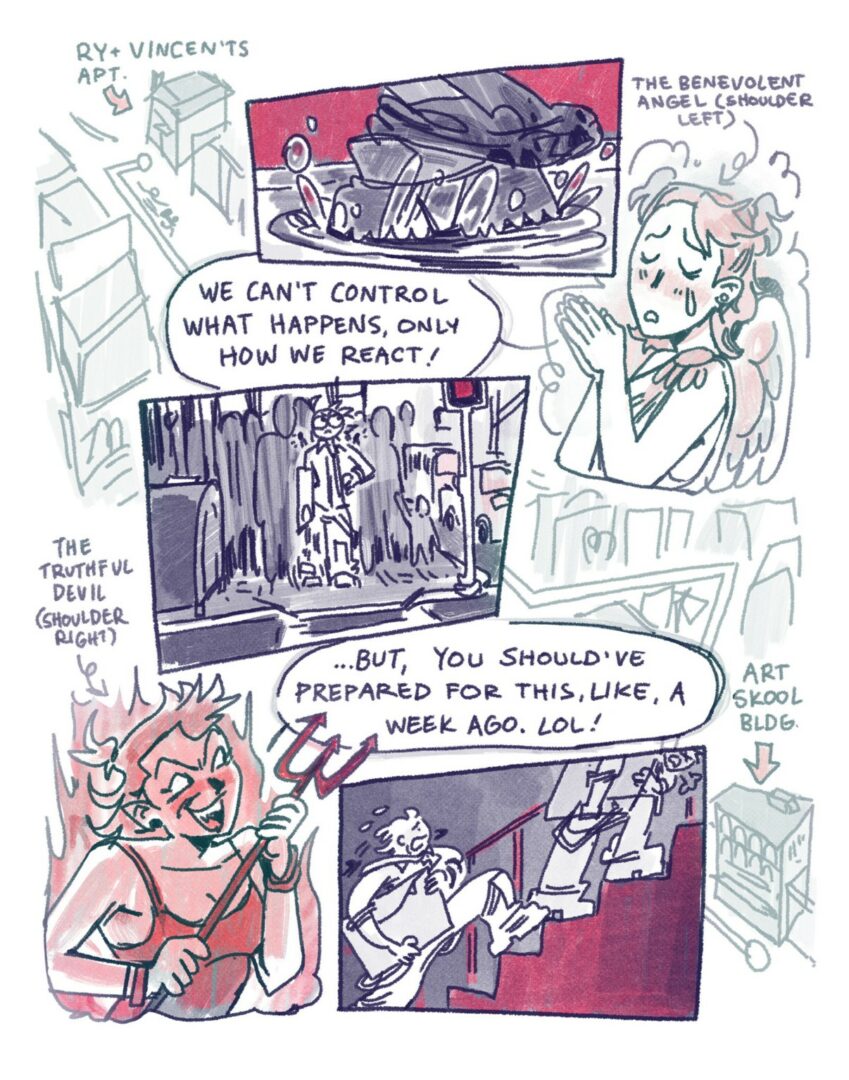
Appreciate the insights and wisdom. Before we dig deeper and ask you about the skills that matter and more, maybe you can tell our readers about yourself?
I’m an illustrator and painter based currently in Portland, Maine. I love people, trying to capture something about them, sharing that experience through the 2-D plane. Generally I’m most interested in themes that are off the beaten path. I love horror movies and seeing live music, so I think those two things inform my art the most. I’ve been thinking a lot about artifice and performance lately–what is the line between genuine and fake, when does something turn from real to unreal, the parallels between the analog (trees, veins) and the digital (telephone poles, wires)–and that has been influencing my painting work lately. I’m usually an anxious person, so I try to distill that fear into something I can get out of my head and onto the page instead. I find art has the ability to allow myself to reflect and process in a way that nothing else can. I also love color–the higher intensity the better–as well as being able to “see” the act of making in the final image (brushstrokes, clear markmaking–being able to learn something about the person making the art through the means in which they’re making it, myself included!)
I’ve been working on a comic for the 2025 Shortbox Comic Fair, which I’m super excited to be a part of. I had the opportunity to be in the 2022 iteration of the fair, and that experience was really transformative for me. Each year always produces such a great, strong variety of work, so I’m thrilled to be part of it again. The comic I’m making this year, SAINTS FOR GIRLS: RY CARPENTER HAS A BAD DAY, is the origin story for a group of characters I’ve slowly been working on since 2020. Their band, SAINTS FOR GIRLS, is basically everything I’d want in a real band, so it’s a really fun and self indulgent project for me. This comic specifically showcases how the band is formed, and I’m excited to share it with everyone (and to see what comes next)!
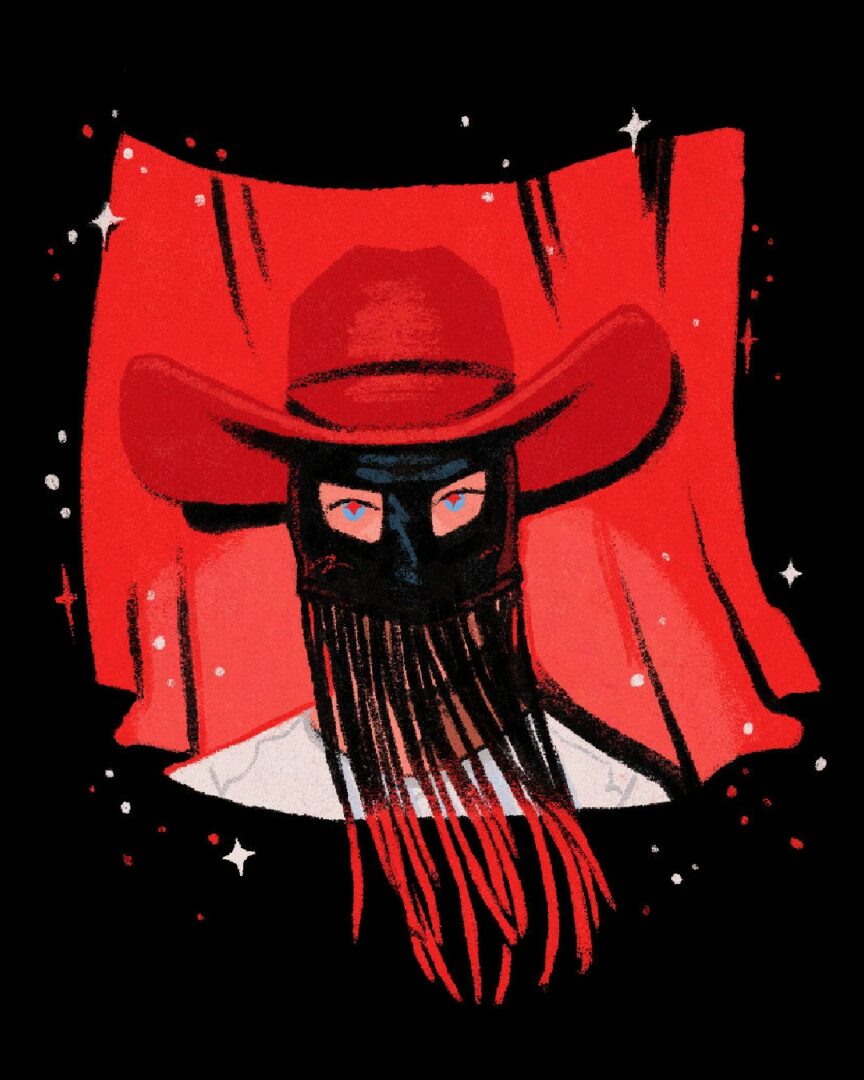
If you had to pick three qualities that are most important to develop, which three would you say matter most?
1. Curiosity
Having the willingness to experiment, and the want to learn, is super important to be able to grow as an artist. I think some people (myself included!) really struggle with opening themselves up artistically, and get stuck in patterns of making and thinking. Try different things out! Learn as much as you can! (This extends beyond the arts itself–I think being curious about the world around you genuinely helps make you a better person). Illustration particularly allows for so many cases where you get to learn how to problemsolve and articulate so many different ideas. Allowing yourself to try–even if it turns out poorly, or different than what you expected–and then being able to get something out of the process yields much greater results than never trying anything at all. One of the best pieces of feedback I received during my undergrad was when I was in a painting class. I was describing my plan of attack (I was going to use a photo reference I took, and really try to replicate it on my wood panel), and my professor asked me, “Why?” Why was it important to stick to the photo so directly? I realized I didn’t have a good answer, and that question then led me to exploring more loose, expressive methods of painting. Asking yourself why you’re doing something, or not doing something, and following the train of thought to wherever it may lead, is such a valuable practice as an artist (and as a person).
2. Routine
I struggle with the often-repeated advice of “draw every day,” because there *will* be times where that’s just not possible. If you’re working full-time as a student, or you’re a parent, or you sustain an injury which forces you to rest for weeks, that advice falls flat. So instead, I think it’s more useful to try to establish some sort of routine of making for yourself. If the only time you have to make is on Sunday nights, then dedicate Sunday nights to just that. If you have a long commute on a bus or train (like I do), bring a small sketchbook with you. Having some sort of space (or some kind of caddy you can easily store and move your stuff in), even if it’s small, that you can have access to for “art time” is also great. Basically, try to find as many ways as possible to make the act of making as frictionless as possible–that way, when you find yourself with the time to make art, and the mental space for it, you don’t have to fight around other obstacles in the way. (I also count taking care of yourself as part of this section–PLEASE make sure to build a stretching routine!!! DRAW STRONGER by Kriota Willberg is a great book to check out about this topic).
3. Presentation
It makes SO much of a difference when you’re able to present yourself and your work well. Making your work easy to find, and well documented, is something that puts you above a lot of other people. Particularly with student work, so many don’t know (or don’t particularly see the importance of) how to take a good photo of their work, or laying out a good website. But, if it’s a dark/blurry photo, or your website doesn’t have your contact information on it, then the quality of the artwork itself doesn’t even matter. I think particularly in the world of illustration (where you’re usually working for a client, or an editor, or an art director), it’s so important to represent yourself well. I don’t think you have to be overly formal, necessarily, but I think it makes a good impression to the person you’re working with when you’re able to send clearly labeled, nicely lit thumbnail sketches (as an example). It says “Hey! I’m here, and I’m ready to make some good artwork!”
Even beyond clients, I think this also helps you find an audience online as well. I struggle with recommending good advice for building a social media platform, just because of how much the landscape has changed especially in the last few years, but I think putting yourself out there in a way where people can find you and your work is really important. I’ve been building a newsletter this year that I send out monthly, and it’s something I wish I had started sooner. Particularly, I think ways you can host your own content (i.e. a website, a newsletter, etc.) that stand alone from the Big Social Media Giants is really valuable; that way, you’re not affected by the whims and wants of the people who own those platforms.
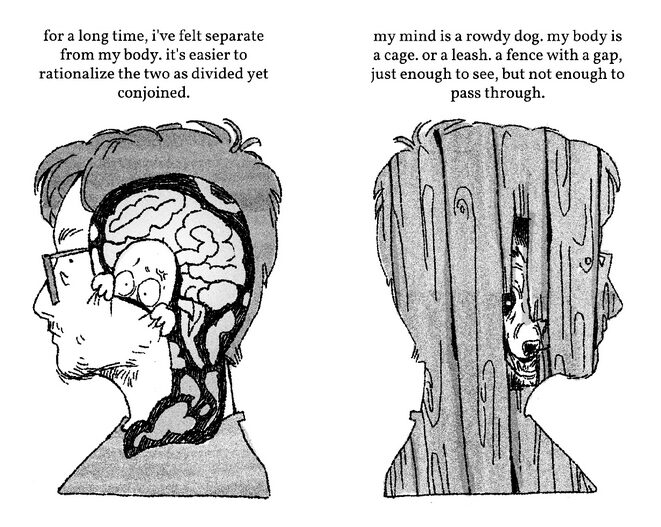
Thanks so much for sharing all these insights with us today. Before we go, is there a book that’s played in important role in your development?
As someone who makes comics, I feel particularly indebted to UNDERSTANDING COMICS and MAKING COMICS, both by Scott McCloud. UNDERSTANDING COMICS in particular is a book that gets recommended SO much, but once you read it, you get why. It really expanded my mind and knowledge about the function and form of comics, the way that they translate space and time, both from a reader’s perspective as well as an illustrator’s perspective. Sequential storytelling has so many moving parts–not only the art and the text, but how the two mingle together–and I think Scott’s book is a great text for beginning to understand the choices one can make in the art form. Choices like stylizing, or which moments in a series of actions to articulate, are things that are easy to take for granted as a reader, but as an illustrator, it’s important to consider the outcome your choices can have. I’d recommend UNDERSTANDING COMICS for anyone remotely interested in the art form from either side, as I think it provides a lot of great perspective. MAKING COMICS is also great, but as the name implies, I’d recommend it more for people who want to make comics themselves. It dives into more depth regarding the active choices that are involved in making comics, and is a great addition to an illustrator’s bookshelf.
I also think generally, reading as much as you can (both in terms of quantity, but also in variety) is great, whether you’re an illustrator or not. Hooray for the public library!
Contact Info:
- Website: https://crvptozoology.com
- Instagram: https://instagram.com/crvptozoology
- Youtube: https://youtube.com/@crvptozoology
- Other: My newsletter: https://courtnormandin.substack.com
My Tumblr: https://wuntrum.tumblr.com
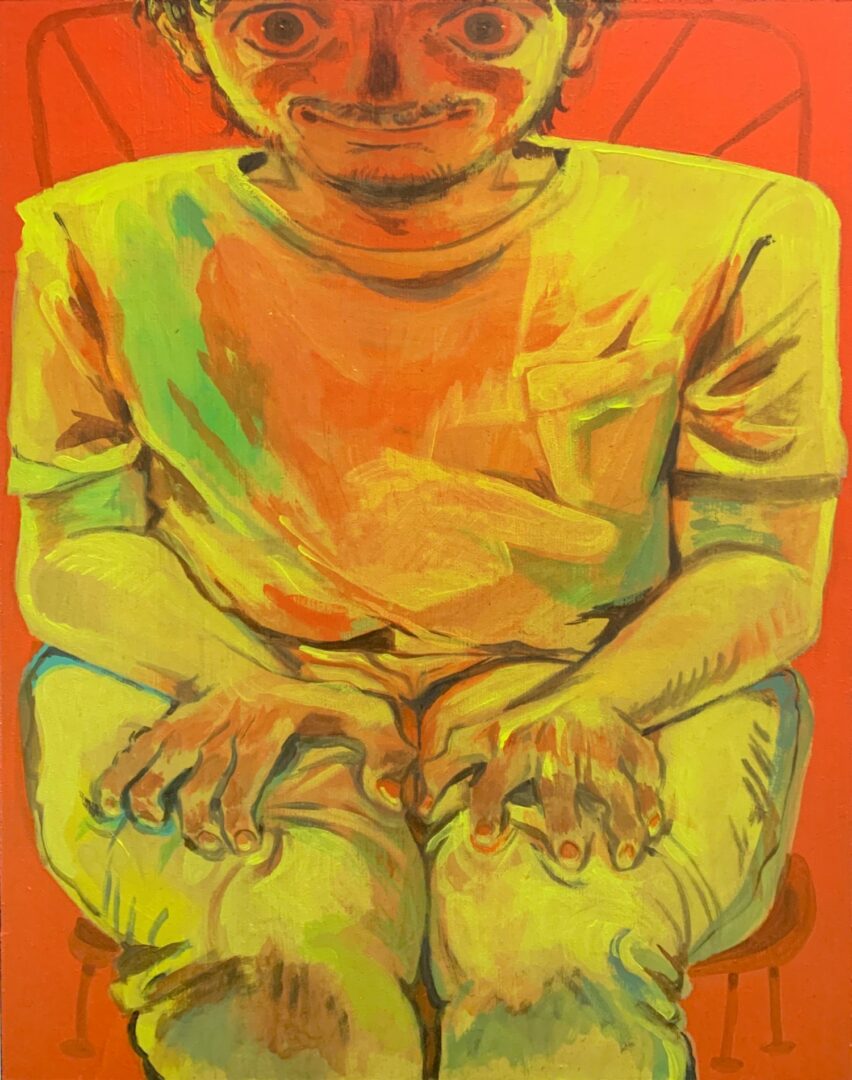
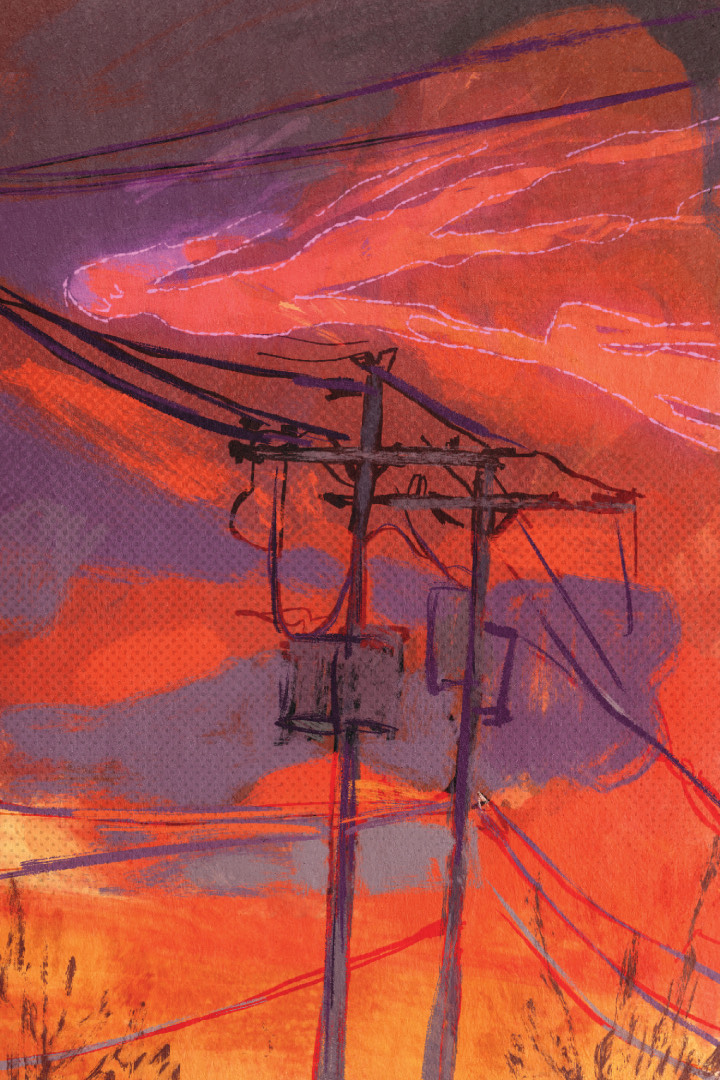
so if you or someone you know deserves recognition please let us know here.

